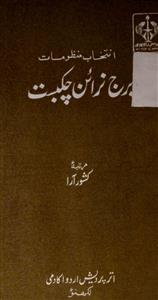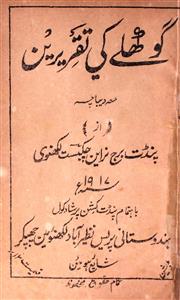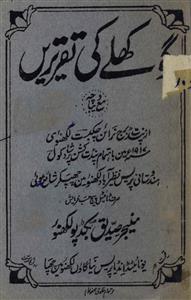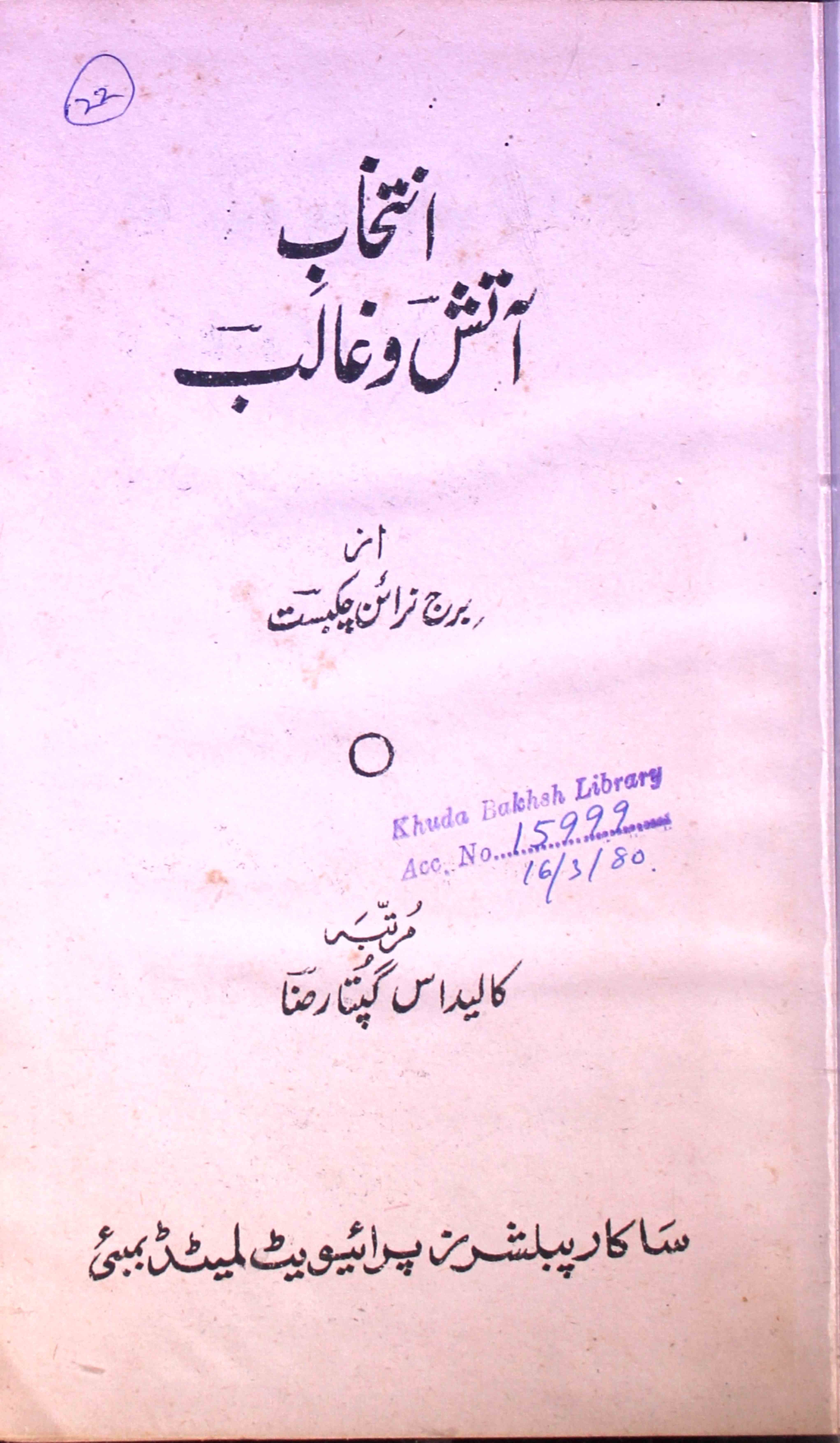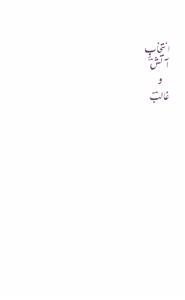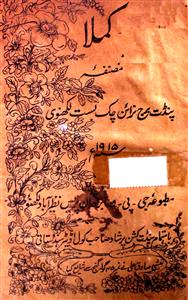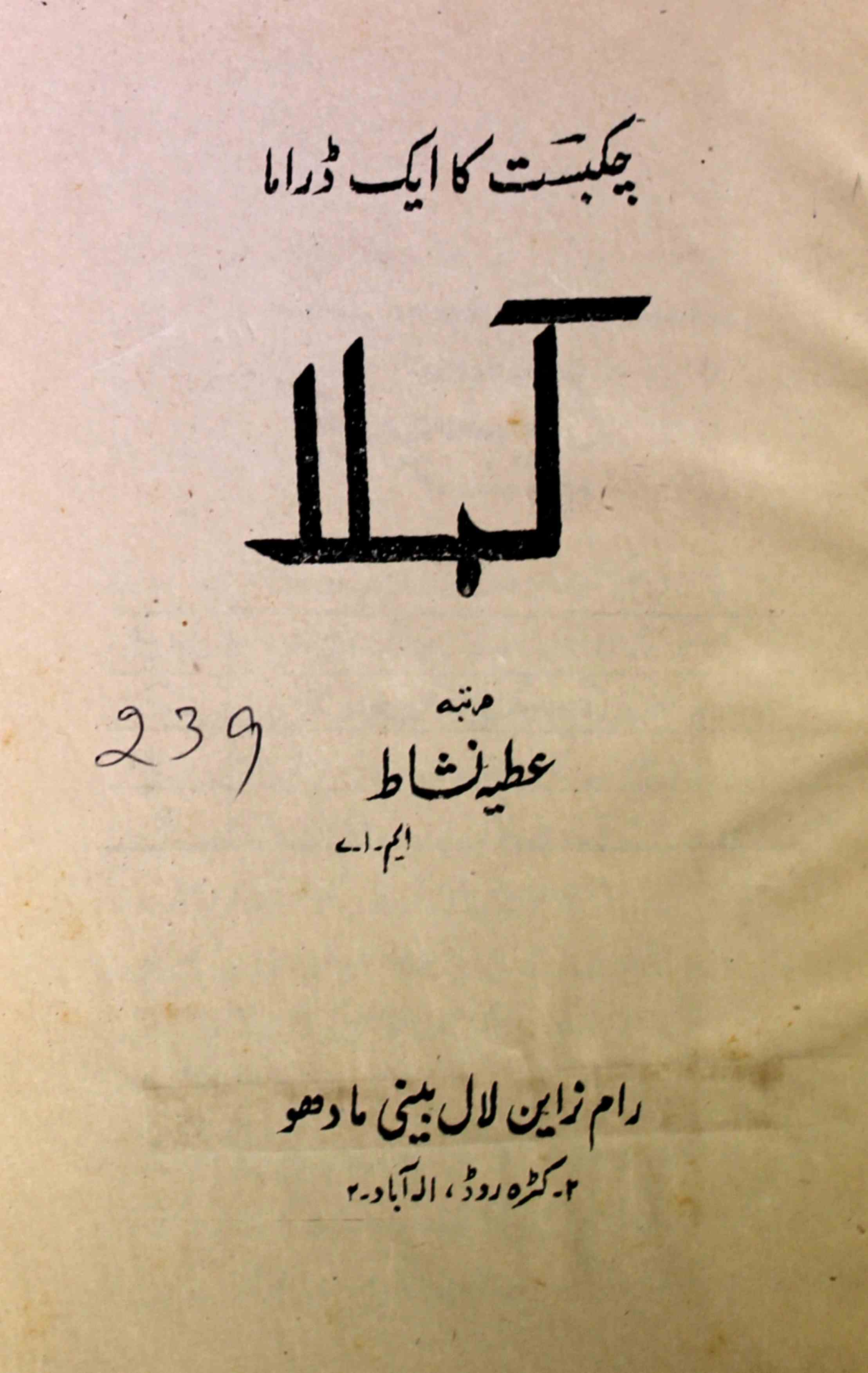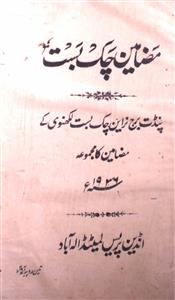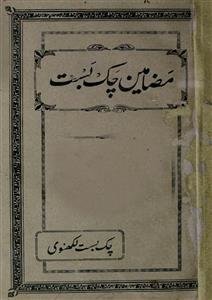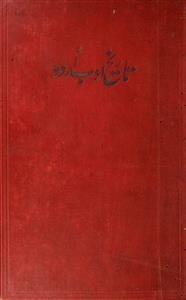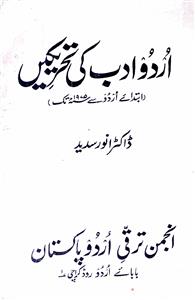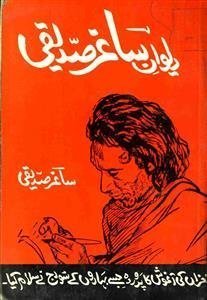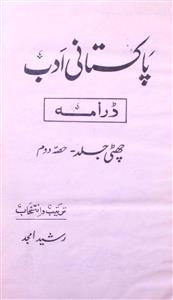 For any query/comment related to this ebook, please contact us at haidar.ali@rekhta.org
For any query/comment related to this ebook, please contact us at haidar.ali@rekhta.org
About The Book
زیر نظر کتاب "انتخاب منظومات برج نارائن چکبست" کشور آرا کی مرتب کردہ کتاب ہے۔ اس انتخاب میں چکبست کی ایسی نظموں کا انتخاب کیا گیا ہے جن نظموں سے چکبست کے کلام کے مختلف گوشوں کی نمائندگی ہوتی ہے۔ اس کے علاوہ اس انتخاب میں اس بات کا بھی خیال رکھا گیا ہے ، کہ چکبست کی وہ نظمیں جو نصاب میں شامل ہیں ، ان کا بھی احاطہ ہوجائے۔ چکبست نے قوم پرستی اور حب وطن کو اپنی شاعری کا بنیادی موضوع بنایا تھا۔ جکبست کی نظموں کو پڑھتے ہوئے ایسا محسوس ہوتا ہے کہ وہ زیادہ تر سیاسی واقعات سے متاثر ہو کر کہی گئی ہیں۔ اس انتخاب میں آپ کو اس طرح کی نظمیں پڑھنے کا موقع ملے گا۔
About The Author
Brij Narayan Chakbast (1882-1926), who hailed from a family of the Kashmiri Brahmins, was born in Rathor Haveli, Faizabad but migrated to Lucknow early in his life. Receiving his initial education in Urdu and Persian from a maulavi, he also got exposure to classical literature in these languages as he grew up. As for his formal education, he acquired his degrees of Matriculation in 1900, F. A. in 1902, B. A. in 1905, and Bachelor of Laws in 1907. Chakbast was acutely conscious of the socio-political conditions of his time which is borne out by his active participation in creating Kashmiri Young Men’s Association, establishing Bahadur Library, expressing his views on Home Rule, and a joining host of other issues and activities. He joined Lucknow Bar and emerged as one of its most distinguished members. His career as a poet and an individual of acute socio-political consciousness was cut short with his premature death following a paralysis at the Railway station in Rae Bareilly where he had gone to argue a case in the court of law. Chakbast is respected and remembered as a man of remarkable poise; he was guided by a fine balance of reason and emotion in his thought and action.
Chakbast who maintained his cultural identity with pride was a truly secular person with equal reverence for all communities and faiths. He wrote a kind of poetry that was both nationalistic and ameliorative in purpose. While he was influenced by Mirza Ghalib, Meer Anis and Haider Ali Atish as a poet, he drew upon Gandhi, Annie Besant, Gokhale, Ranade, and such others as a politically and socially conscious being. He wrote ghazals but chose to express himself primarily in nazm which he cultivated as a form suitable for writing natural poetry. Subh-e-Watan, his collection of poems, published posthumously in 1926, is divided into five sections and has poems on patriotic, nationalistic, religious, reformative, and political themes. Even though writing on such issues is liable to collapse into propaganda, Chakbast saved his poetry from such lapses. His works in prose and poetry are marked both by simplicity and spontaneity that find an immediate appeal with the readers. He evolved his own poetics which is evident from his literary essays which he published at various places and in Kashmir Darpan. His poetical works were put together as Kulliyat-e Chakbast in 1981.
 For any query/comment related to this ebook, please contact us at haidar.ali@rekhta.org
For any query/comment related to this ebook, please contact us at haidar.ali@rekhta.org
